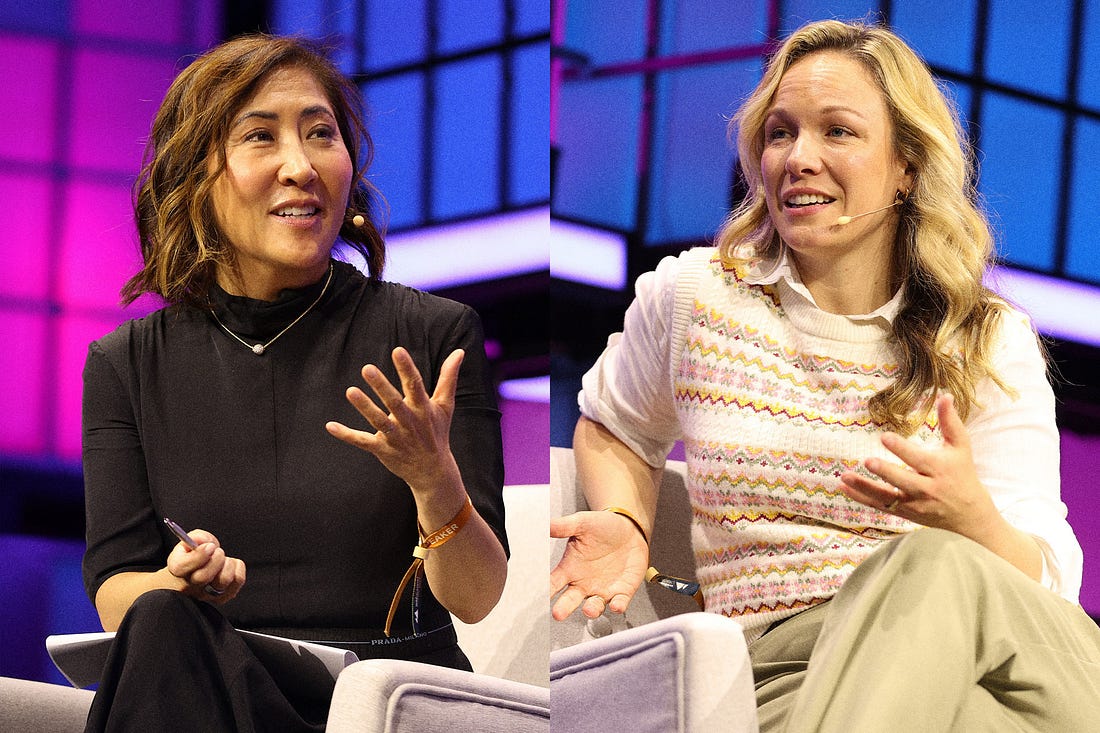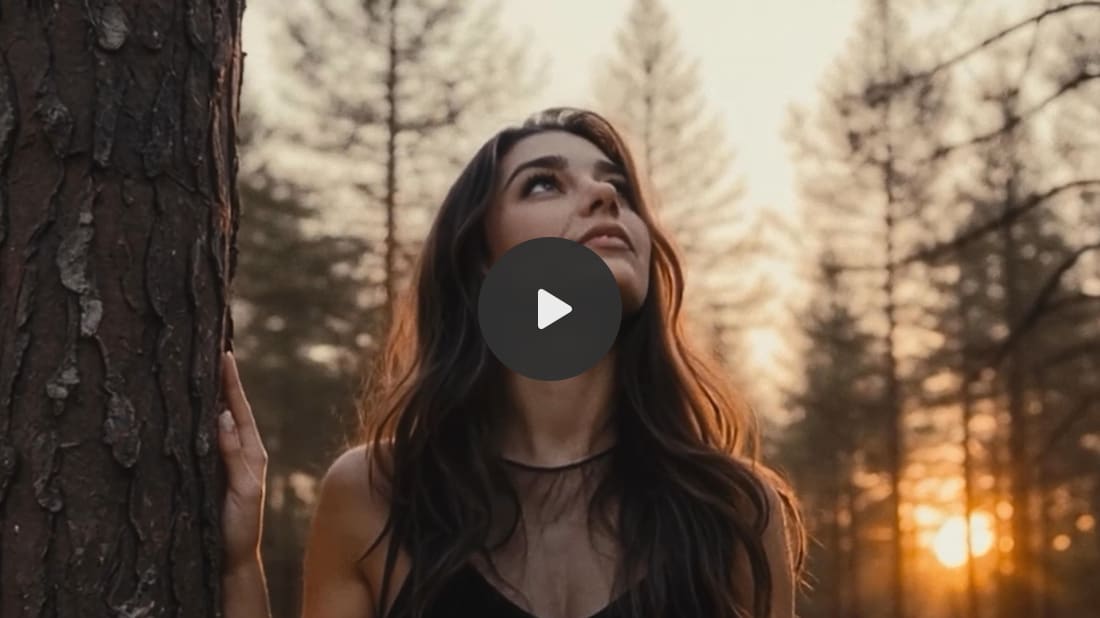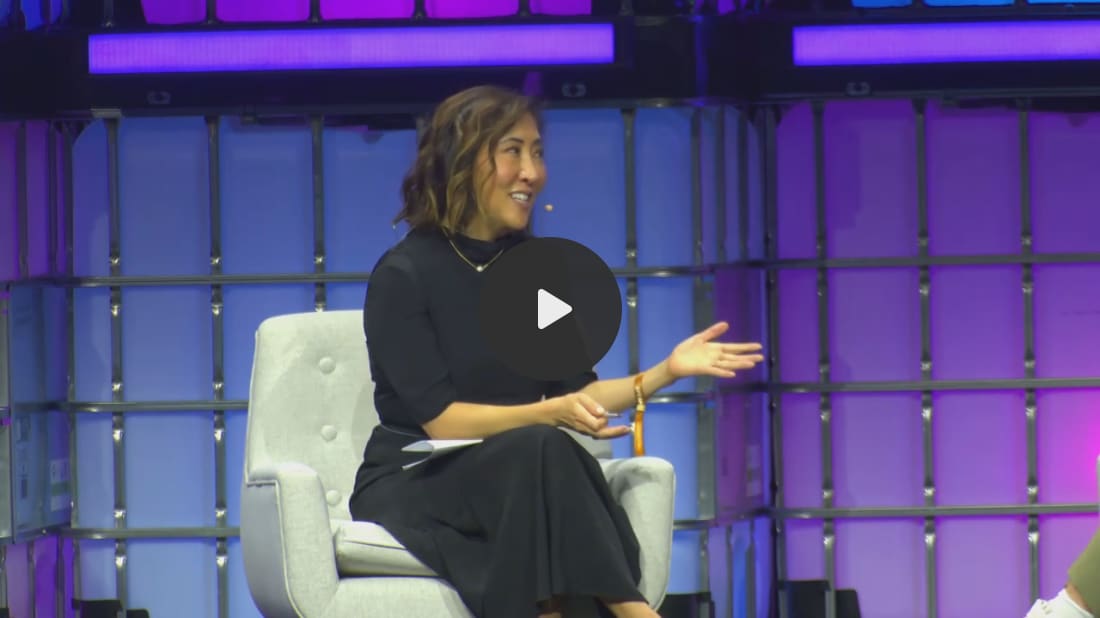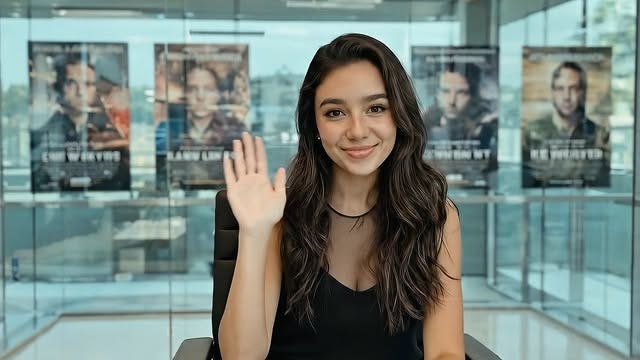→ You can now listen to all Ankler stories in the Substack app. Just hit the “play” arrow at the top right of the screen. Tilly Norwood Will Think for Herself Soon. And Her Creator Has a Warning for HollywoodEline Van der Velden reveals new footage, answers the agent question, responds to outrage and says creative industries — not Big Tech — must set the rulesAs the debate over AI reached a fever pitch during the 2023 Hollywood strikes, a well-regarded studio chief recommended I read Ted Chiang’s novella The Lifecycle of Software Objects. In it, Chiang — who wrote an earlier novella that became the film Arrival — imagines digital beings called “digients” who begin as childlike AIs and slowly develop agency, desires and emotional inner lives. One of them, Marco, is ultimately sold and sexually exploited. The story is unsettling — and in 2010, felt futuristic, almost fantastical — a parable about the collision of intelligent digital creations with human ownership, power and ethics. Fast forward to now. I thought of Chiang’s story while flying home from Europe today, where the anxiety over AI is as charged as it is here. At Web Summit Lisbon — the annual 72,000-person tech gathering — I joined Eline Van der Velden onstage to talk about Tilly Norwood, the AI-generated actress created by her London production company Particle6 and its AI studio Xicoia. In the five weeks since she revealed that talent agencies already were circling Tilly for representation, the character has generated attention, outrage, fascination and existential dread. The audience in Lisbon was rapt. Of course, artificially generated humans are not new. Mark Zuckerberg tried — and failed — to coax the world into living inside the Metaverse. Lil Miquela, the CGI influencer, fronted Prada campaigns, appeared “at” red carpets for Stranger Things and was signed by CAA. But none of that ever caused anything close to the seismic reaction ignited by Tilly. That’s because, as Van der Velden herself put it, there simply has never been anything like Tilly in likeness, speech, physicality and personality. Take a look at the reel Van der Velden debuted of Tilly during our onstage conversation containing new footage: Our collective fears are not panic. Amazon intends to replace as much as 75 percent of certain job functions with automation, and Los Angeles’ entertainment sector has shed 41,000 jobs in two years. One number I can’t stop thinking about: L.A.’s unemployment rate (5.7 percent) is 33 percent above the national average (4.3 percent). OpenAI’s Sora 2 debuted just weeks after Tilly with a grotesque trove of copyrighted material scraped without permission — IP from Disney, Warner Bros. and practically every media company in the world. Eventually, Sam Altman responded with his version of opt-in/opt-out sleight of hand, but the damage was done. As seen in the Anthropic settlement for $1.5 billion over mass copyright infringement of published works, the message from Silicon Valley remains: Ask for forgiveness, not permission. Will Hollywood even have the legal firepower to take on companies worth half a trillion dollars when the studios can barely service their own debt? One thing clear in listening to Van der Velden (and in the ongoing sharp coverage from our Reel AI columnist Erik Barmack): AI is no longer a monolith. We should be talking about it differently. There are good actors in the space (Runway, Pika, Wonder Dynamics, Adobe — those working with licensed data) and bad actors (see above). Not all AI creators are building tools meant to cannibalize jobs or bulldoze human artistry; many are looking to supplement and support it. After talking to Van der Velden — and then, by coincidence, sitting next to her on a flight from Lisbon to London — I found someone who is, at minimum, listening. She works only with licensed material. She is trying to build guardrails, not ignore them. She loves art and artists. You may hate what Tilly represents, you may recoil at some of Van der Velden’s comments, but you very likely agree with her point from our conversation:
Below is an edited transcript of my conversation with Van der Velden, or you can watch it in full on video here: JM: Tilly Norwood has created quite a stir. The last time she posted on Instagram — yes, she has an Instagram account — was September 28th. And since then it’s all blown up. Hollywood had a meltdown. How have you been feeling, and what’s your response? EV: Yeah, I mean, it was quite a response. It was a very small trade announcement that we did (at the Zurich Film Festival). I was totally not expecting that reaction, but I totally understand because people were misinformed about Tilly. They thought that she was going to take their jobs, in which case I would be terrified, too. But that’s not what we set out to do with Tilly. Tilly’s meant to be an AI actor in the AI genre. We believe firmly there are three genres: traditional film and TV, animation, and AI genre, which is very close to animation, and that’s where we think she should stay. Well, let’s talk about that a little bit. You did liken her to actresses. You said she could be the Scarlett Johansson or Natalie Portman of her genre. EV: Of the AI genre. So what does that mean? EV: We want her to be a big star in the AI genre. It was really an IP play. I have had this production company (Particle6) for 10 years, and three years ago, when ChatGPT came out, I realized where the industry was going. And so if you extrapolate that further, you also realize that we’ll be looking at AI talent, AI influencers, and I’m really proud of having been trained creatively in Britain, and British talent is a huge export. So I wanted British talent to be an export of this next AI genre, of this new creative renaissance that we’re going to be in. CGI characters have been around. A few years ago, there was a character, Miquela, sometimes called Lil Miquela, who had a brand deal with Prada, had a magazine guest column, walked the red carpet for Stranger Things. Nobody freaked out. Why are people losing it over Tilly? EV: Because she looks more real. The tech is in a new place, and that’s really what we wanted to show with Tilly. Particle6 is very much the production company, and we are there to be a force for good with AI content and helping film and TV that’s, say, missing 20 or 30 percent of their budget. Instead of them scrapping all the exciting and expensive scenes, which is what they would probably normally do, we say, “Let’s make it with AI and get your film greenlit and actually get more actors into work.” (According to its website, Particle6 has done AI-generated special effects work for the BBC, Hearst Networks and Sky Kids.) In Hollywood right now, there’s a scarcity mentality. Production is way down, we just went through big strikes. SAG-AFTRA or in the U.K., Equity, came out against Tilly Norwood. What do you say? Well, I don’t disagree with them necessarily. They said she’s this computer-generated character. I agree. She’s a computer-generated character. Now, the fact that they also said she was based on people’s likeness, that’s not necessarily true. We have tried to create a completely wholly original character with her. A lot of thought and humans went into creating her. Yes, these data models, they train on vast amounts of data, billions and billions of amounts of data, and I agree that they should be properly licensed and paid for to do that training. So those court cases are hopefully going to get settled going forward. Having done this for three years, you learn what the ethical ways are of prompting and getting that right image. You make sure that you don’t mention any [copyrighted] material in your prompts. You go from wholly original thoughts, and we have so many iterations, and it goes back and forth. With Tilly, we wanted a British actress, but we wanted her to look really real. And so I think we went through about 2,000 photos in order to find the right Tilly. And when we finally had that, we were like, okay, great, now let’s recreate her. So it’s a long, long period of research and development. And then her name was such a big thing because we wanted her name to be unique. There’s no other Tilly Norwood in the world. I know Ryan Reynolds tried to find — In his Mint Mobile ads, right? Yes. He tried to find a Tilly Norwood. He couldn’t. He found Natalie Norwood. It just shows the amount of work that went in behind Tilly, and that’s really important. (The ad shows Reynolds standing next to a real Mint Mobile customer named Natalie “Tilly” Norwood and asking her if she’s real.) 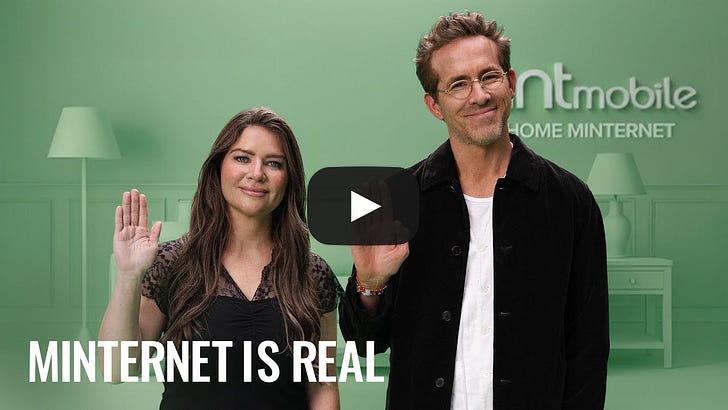 But are you concerned at all? The reason people became worried is because Tilly is so good, right? This isn’t like Lil Miquela coming and stealing a role from Emily Blunt, who’s one of the people who spoke out about Tilly. I know it took 15 people to create Tilly, and that’s job creation. But what about what’s going to happen? Do you see a future when actors are replaced by a Tilly or some of your other digital creations? No. So I can see why it seems really scary. I mean, when we started working with this tech, we were like, whoa, this is so scary. So I totally get the reaction, but I think it’s additive. I think we’re at the cusp of a huge creative renaissance. It’s like the Blockbuster/Kodak moment. You either go with it or you get left behind. And in this creative renaissance, we are going to have animation, real traditional film and TV, and AI genre. And if I were in charge of the guidelines, I wouldn’t let the AI actors take the real actors’ jobs. This is why I feel very strongly about the creative industries being in charge of these guidelines and coming with that tradition and the background [to guide] how we are going to move this industry forward with this new tech, as opposed to it being imposed by the tech industry. A movie that OpenAI is doing called Critterz will be the first full theatrical release of an animated AI-generated movie. At The Ankler we called it “Pixar for AI.” And that’s scary to people. But what you’re saying is that you don’t see Tilly acting side by side with human actors? What I think is more likely to happen is that real actors would like to be in the AI genre and have a digital twin of themselves in the AI genre. We’ve already had those requests in. We’re already working with some top talent on creating a digital twin of themselves, only with explicit consent and fair compensation. 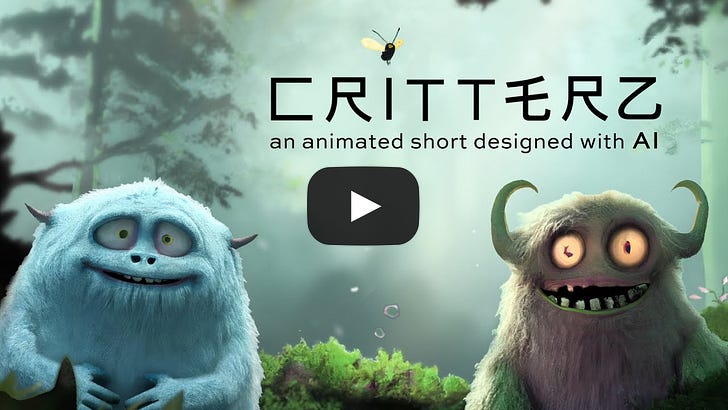 There’s so much of this happening already that the consumer is not aware of. Can you walk us through some of that? Yeah, so say you are an elderly actor and you still want to be in a film, we can do that. If you want to be an actor and you want to be in a certain commercial at the same time you’re filming in two other films, you can do that now. So it might increase the income of those actors. We also have young actors who’ve never acted before that want their likeness to be used in AI genre. So I think slowly the actors will start to realize it might be a positive thing for them as well, but, I mean, it’s additive. And both will grow. You had told me when we were talking beforehand that we are seeing in advertising digital twins that we might not even be aware of. Yeah. Yes. That is happening, which is incredible. What is the business model of Tilly? Are you making money on her yet? We have said no to many of the opportunities that have come her way. Such as? Starring in a feature film with real actors, because that was not what she was intended for. We very much want her to focus on her own development and her own story. So that’s really where we’re going to be working with her. The business model is just like any IP or brand, like a Marvel universe. That’s really what we want to be creating. Does Tilly have agency? We’re seeing AI develop faster than people’s imaginations. Can Tilly go to a set and riff with actors? Give a director notes back? How far are we pushing Tilly? We see Tilly as an onion. We’ve done the outer edge of her, what she looks like. We are now working on the layers underneath, and we want her to be a 3D character, just like you would want to write a fully created character in any script. So we’re creating her personality in her brain and we’re going further into that. Is Tilly going to age? Is she going to get older? She can get older if we want her to, yeah. (Van der Velden says Tilly is currently 24) You mentioned Marvel. Disney owns Marvel. They want to own their own IP, they want to own their characters. Is Tilly for sale? Eventually, I would hope that somebody might want to buy her. Or not. We monetize the universe well. In one of the posts on Tilly’s Instagram — I’m talking about her like she’s real — there was a fully AI-created development meeting where one of the male development executives, I think he says, “I love it. She’ll do anything I say.” You can see how that can get dark. Yeah, I clearly come from a comedy, satire background. What’s to stop Tilly Norwood or the next digital characters from... Will they do nudity? Will they do pornography? Are there boundaries that you feel as the creator of Tilly you can impose? Yes. It’s like bringing up a child, really. You want to give them good guardrails, morals and values before you let them loose in to the world. And it’s sort of the same with an AI character. You want them to have those guardrails in place. As just like with any IP, you would want to be in control of the IP and decide whether or not to do nudity with them or not. You also have mentioned to me that there are some cases where maybe AI actors are preferable, but not necessarily in the ways we’re thinking about employment. Can you expound on that? I would love to leave people with this thought. Have a think. It’s a thought experiment, which I love a thought experiment. In which instances might it actually be more ethical to use an AI actor? I don’t want to put any thoughts into people’s mind. I would just like people to think about that. I mean, can I make a point on that? You can think about it. My partner Richard Rushfield has written extensively about the amorality of using child actors. Then there are also many instances of animal abuse in certain films. I will leave it at that. What do you think the audience’s appetite is? The metaverse, I think, is kind of a bust, right? What do you think the appetite is for an audience to relate to and value artificially generated content? I love all sorts of storytelling. I love verbal storytelling, written storytelling, any type of artistic storytelling, performance art, animation, live-action and AI genre. And I think it’s the story that’s really important in the end. I’m going to play out the doomsday scenario for Hollywood. Critterz is going to the Cannes Film Festival next year. So what happens if Critterz is an enormous hit? My feeling is the takeaway from Hollywood is, “Oh, forget those actors and humans. This is the way we make more money.” Critterz is animation, so it falls into the animation category, I’d say. But I would be really up for there being an AI genre. Now, animation and AI genre, I guess, may be merged in this instance. I think there’ll be a lot of assistance from AI in traditional film and TV, but I would definitely have a separate genre for AI. It’s a new art form. It’s very creative, very different. It takes a lot of hard work to get anything good out of there. One of the reasons the Tilly controversy caught fire was because you said you were talking to agents about representing Tilly — and that became the thing that lit the fuse. Where are those discussions now? Look, I didn’t think it was that controversial because Lil Miquela was signed by CAA in 2020, and other agencies were attached to her before. So that was the path that we thought was the natural progression for Tilly to go down. We’re still having those discussions. She’s in a whole different space now, though. She’s more famous than she was before, so I still think [an agent] is a vital role for brand and any other deals that could be done. But yeah, there might be someone who starts to specialize as an agency in AI actors or AI influencers or characters. Maybe that might be a good fit. Have you had discussions about Tilly with CAA, WME or UTA — the three big Hollywood agencies? I won’t comment on that. I want to close on the future of Tilly. Give us a preview of how fast the technology is happening and where Tilly is, what can Tilly do, a year from now? I think the whole AI space is going to be completely transformative in the next year. I think people also start to see the positives of it. It can reduce carbon footprint up to 90 percent. It can be used as a force for good. It can get more made. I think there’ll be more characters popping up. You also have said that it can reduce a budget on a film by 50 percent using AI, not necessarily AI characters. And that’s being implemented wide now. Yes. And I encourage that. A traditional film or a TV series, by using AI, we go through the whole shot list and we go, Right, these establishing shots, these animal shots — these are all the things we can do with AI, therefore reducing the budget by 50 percent and the timeline as well by 50 percent. And you’ll actually have more budget and time for the actor scenes. That’s really important. Go back. What is Tilly going to be like a year from now? I think she’s going to have a very exciting 2026. She’ll make way more appearances. There’s going to be a lot of development around her. Will Tilly be able to think on her own and act on her own? She will, yes. Oof. Okay. Well that’s a little scary to me. Maybe you’ll be sitting here with Tilly next year. Got a tip or story pitch? Email tips@theankler.com ICYMI from The AnklerThe Wakeup P.M. Disney+ AI infusion coming — as movies 😩, streaming 👏 in Q3 The Wakeup Apple goes mo’ Momoa, NBA on NBC dips again Is Disney Becoming a Luxury Brand? Rising Prices, Shrinking Crowds, Mounting Risk The studio’s push toward big spenders could alienate the next generation of fans, Entertainment Strategy Guy warns Indie Box Office Bloodbath: Awards Season Is Driving Films Off a Cliff Everyone is caught in the 2,000-screen trap, writes Richard Rushfield. Plus: Congress demands answers on Paramount & Trump Ghosts in the Balcony: A Cross-Country Trip to 58 Theaters Fighting to Survive Introducing Crowd Pleaser, The Ankler’s new newsletter in partnership with Letterboxd: In the worst October for moviegoing since the ’90s, Matthew Frank crossed 20 states to hear the primal screen from people keeping film alive — even when Hollywood won’t $100 Million Hate-Watch: Inside Hulu’s ‘All’s Fair’ Trainwreck — and How It Turned Around Lesley Goldberg has scoop on the budget, cast paydays and behind-the-scenes drama from Kim Kardashian’s critically-savaged series that’s gone ‘zero to hero’ Film Crowdfunding 2.0: An Indie Studio Got 60,000 Fans to Invest $25 Million. How? Ashley Cullins reports on how players like Legion M, Bleecker Street and Eli Roth’s Horror Section are turning to ‘fan-vestors’ to finance films and activate audiences The Death of Dramatic Films: Hollywood Fades into Emotional Flatline Richard asks: Are we really okay with just white men making action comedies? The Art of Hooking Audiences: Execs From a Disney-Backed Microdrama App Tell All DramaBox’s creative team came from traditional Hollywood. Now aiming for $3B in revenue, they tell Elaine Low how they’ve had to unlearn almost everything June Squibb, 96, Is Having the Career Surge of a Lifetime The Oscar nominee is back on the circuit, headed to Broadway — and still waiting for her Western The Women at the Heart of Making Sinners How artisans Ruth E. Carter, Hannah Beachler and Autumn Durald Arkapaw helped turn Ryan Coogler’s blockbuster into an Oscar fave 🎬 Mike De Luca & Pam Abdy on Making Box Office History in the Face of ‘Surreal’ Criticism The Warner Bros. bosses are wrapping the greatest year of hits in Hollywood and explain to Richard how they did it: ‘I refuse to believe we are in the end times’ 🎬 Richard & Sean: Predator Kills It as Starry Indies Flop A bad weekend for Sydney Sweeney & Jennifer Lawrence, but Colleen Hoover’s Regretting You shows legs 🎧 AI Warning Signs — How Hollywood Invited the Enemy Inside Tilly Norwood is the headline. The real story is the jobs collapse already underway 🎧 Gus Van Sant: ‘You Have To Be Obsessed’ The Oscar-nominated director of Good Will Hunting and Milk is back with Dead Man’s Wire, his first film in almost a decade More from Ankler MediaNew from Natalie Jarvey’s creator economy newsletter: Exclusive: What 188 Influencer Marketing Deals Signal About 2026’s Coming M&A Wave ‘IMDb for Creators’: How Famous Birthdays Took Over Gen Z — and Became Agents’ Scouting Tool Andy Lewis’ latest IP picks: A Descent into LA’s Dark Underbelly & A Southern Gothic Mystery |
Tilly Norwood Will Think for Herself Soon. And Her Creator Has a Warning for Hollywood
November 13, 2025
0


